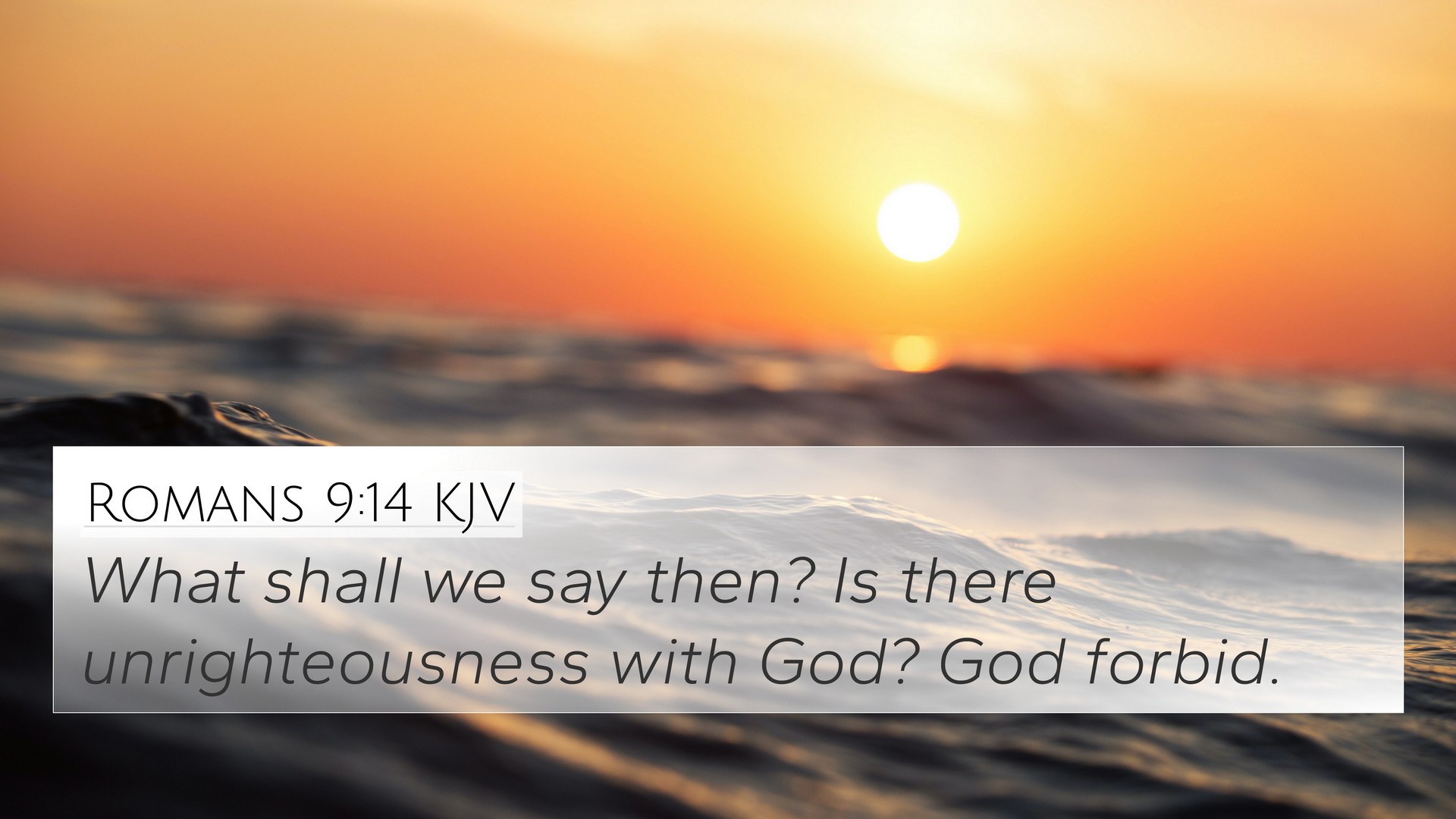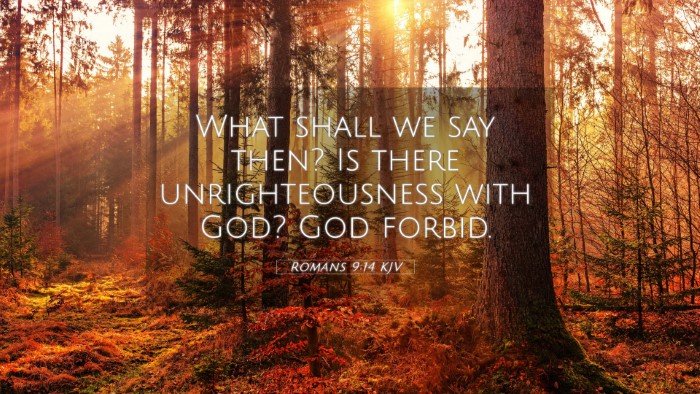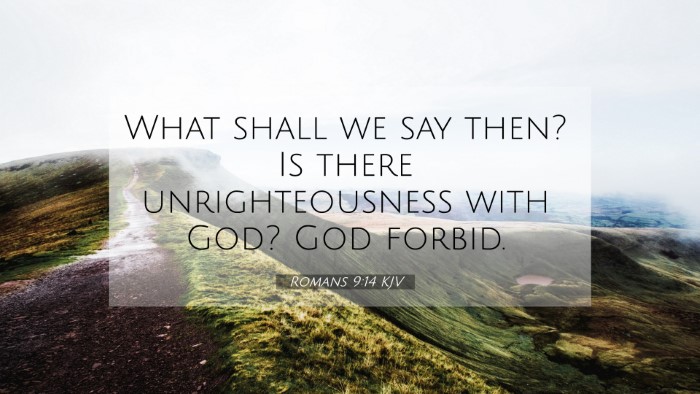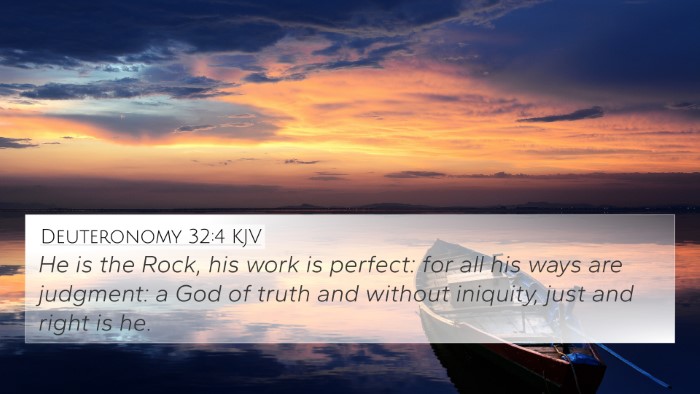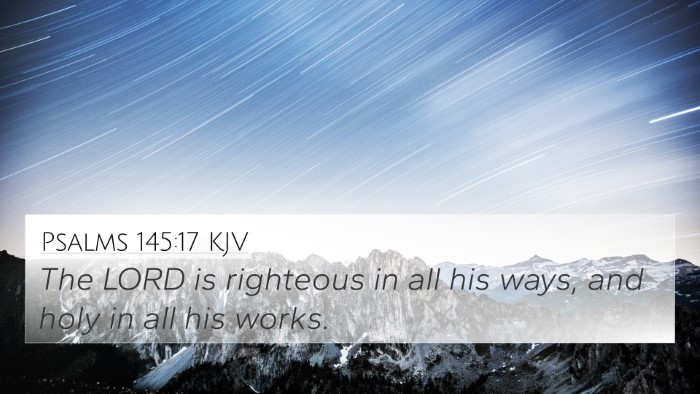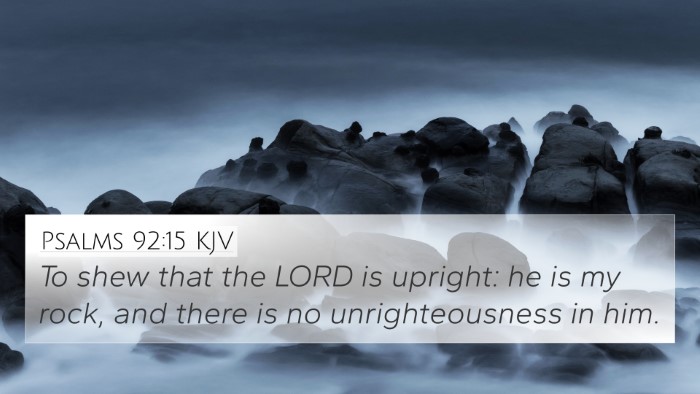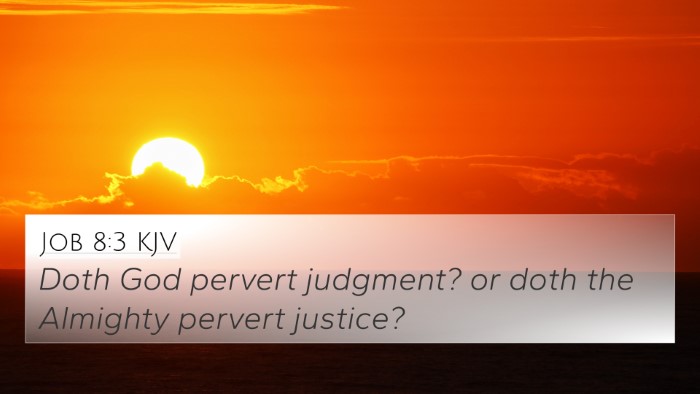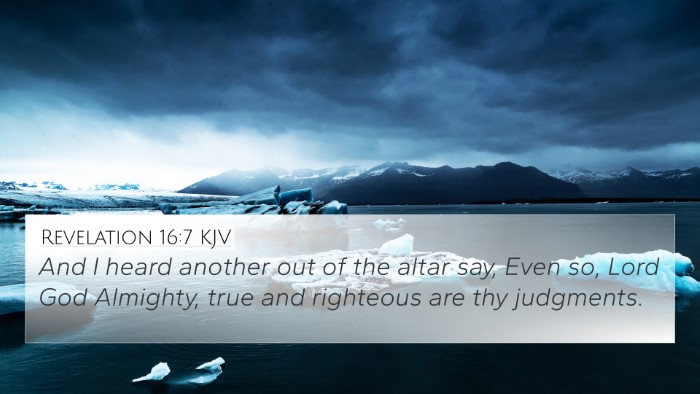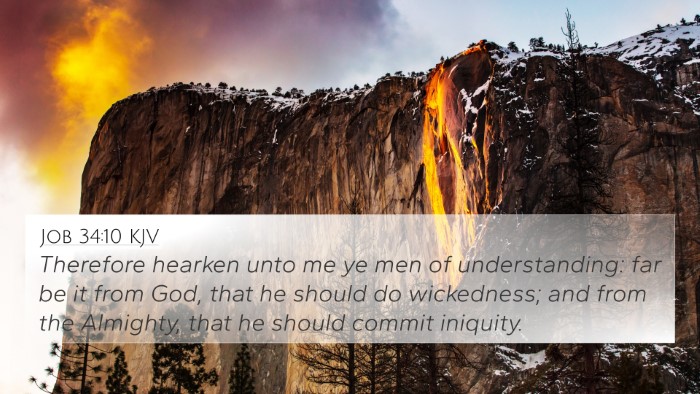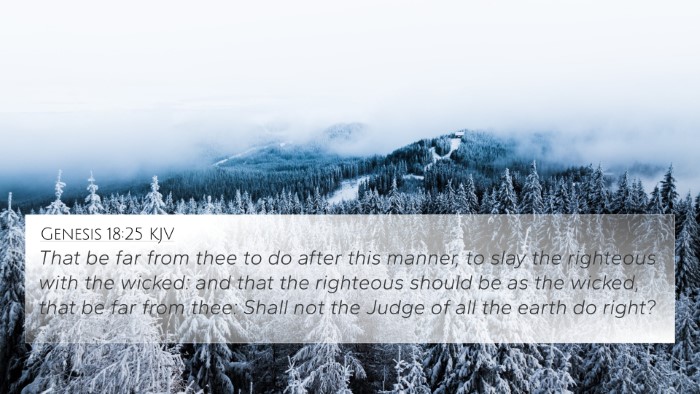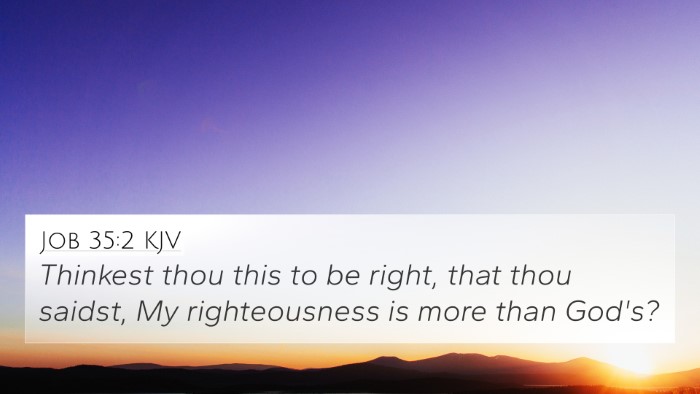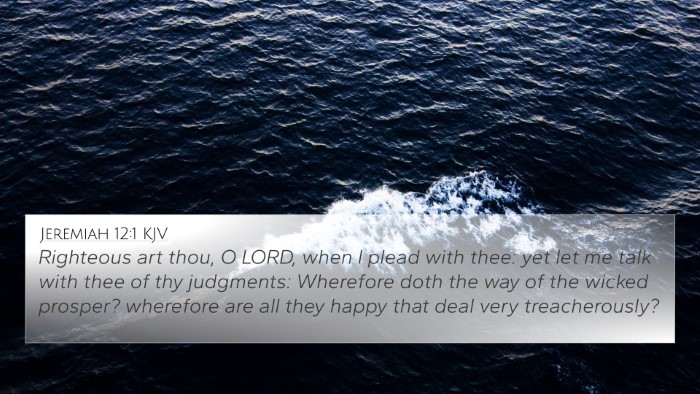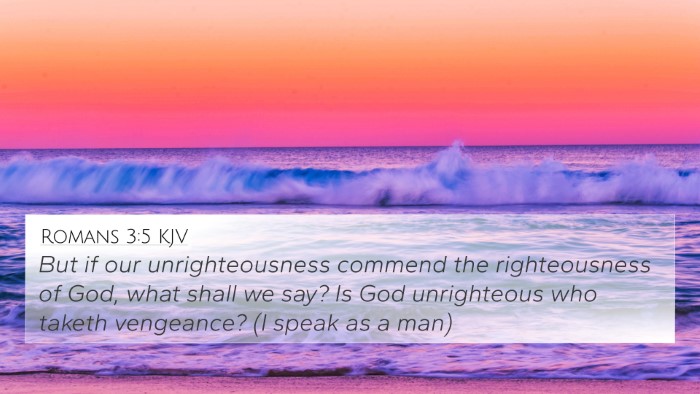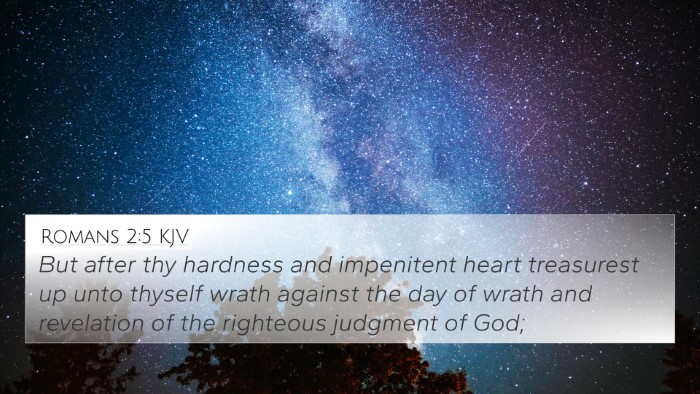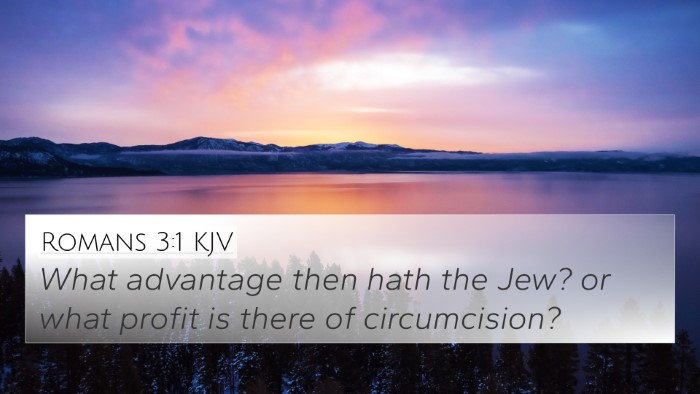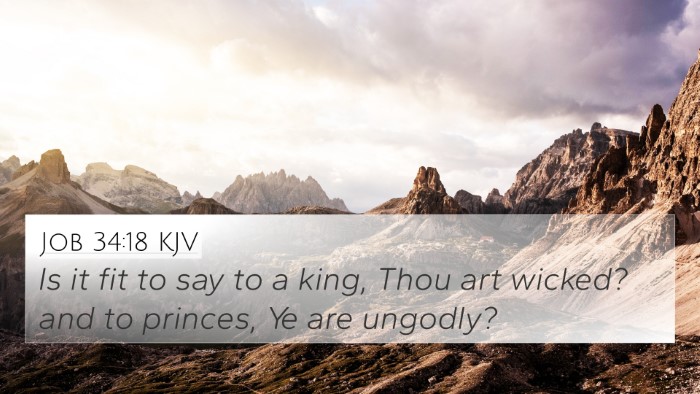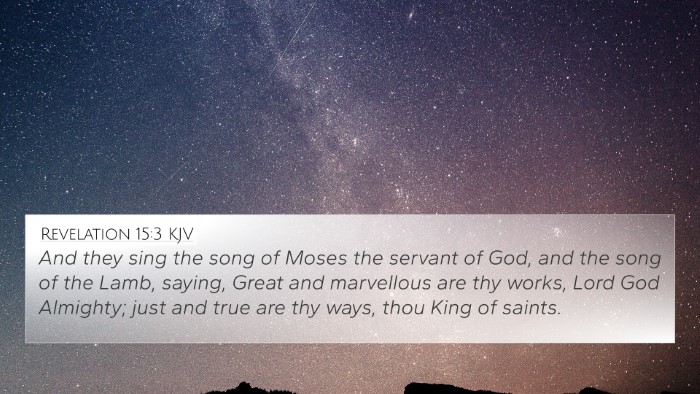Understanding Romans 9:14
Verse: “What shall we say then? Is there unrighteousness with God? God forbid.”
Summary and Interpretation
Romans 9:14 poses a profound question regarding the righteousness of God, particularly in the context of divine election and mercy. The Apostle Paul anticipates objections to his teachings about God’s sovereignty in choosing whom to save, highlighting that human reasoning might perceive God as unjust. This verse emphasizes the necessity of understanding God's nature and actions beyond human logic.
Theological Insights
-
Divine Justice and Election:
According to Matthew Henry, the question raised refers to the sovereignty of God in the act of mercy. The implication is that God's choices are not arbitrary but grounded in His perfect wisdom and justice.
-
God's Nature as Righteous:
Albert Barnes emphasizes that any notion of unrighteousness associated with God's actions signifies a severe misrepresentation of His nature. God’s decisions stem from His inherent goodness and fairness.
-
Human Misunderstanding:
Adam Clarke argues that the human perspective is often clouded by limited understanding, leading us to question divine righteousness when in fact, God's ways are not our ways.
Cross-References for Further Study
To enrich our understanding of Romans 9:14, consider the following Bible verse cross-references:
- Exodus 33:19: God’s declaration about mercy and compassion.
- Malachi 1:2-3: The divine choice of Jacob over Esau illustrates God's sovereign will.
- Romans 3:5-6: Paul expounds on God’s righteousness amidst human unrighteousness.
- Ephesians 1:4-5: The theme of predestination reinforces God’s sovereign choice.
- Isaiah 55:8-9: God’s thoughts and ways are higher than ours, emphasizing divine perspective.
- James 1:13: God's nature is untainted by evil or unrighteousness.
- Romans 11:33-36: A doxology recognizing God’s unsearchable judgments and ways.
Connecting Themes and Insights
By studying these scriptures, one can observe the thematic Bible verse connections that reveal God's sovereign grace and justice:
-
Links Between Old and New Testament:
Like the relationship between Malachi 1 and Romans 9, God's consistent character is illustrated across both testaments.
-
Understanding Predestination:
Ephesians supports similar themes found in Romans, focusing on God's intentional choice.
-
God's Mercy and Justice:
The dynamic between mercy and justice is a recurring theme, notably in Exodus and Romans.
Conclusion
Romans 9:14 invites believers to deepen their understanding of God’s nature, challenging misconceptions about His righteousness. The verse serves as a reminder of the complexities of divine election and invites further exploration through systematic cross-referencing of related scriptures. As we engage with these biblical texts, we affirm the ultimate truth of God's character—perfectly just and infinitely merciful.
Further Study Suggestions
- Tools for Bible Cross-Referencing: Utilize a Bible concordance for deeper exploration of related verses.
- Comparative Bible Verse Analysis: Examine how this verse relates to those found in the Pauline epistles.
- Cross-Referencing Biblical Texts: Engage in cross-reference Bible study to map connections between themes.
- Understanding Challenges in Interpretation: Address how human reasoning often questions divine will.
